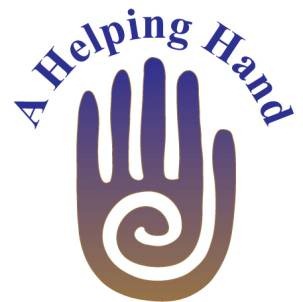
In this chapter, I want to offer some tips to help the bystander of workplace bullying. Just to refresh, workplace bullying bystanders are the people who watch others bully and take a stand by participating, encouraging the bully actively or with body language, doing nothing or defending the bullied victim.
As you probably understand, most of the people in our society are bystanders (thank God!) and by watching or being aware, they become either bullies or victims (fearing to defend) themselves. Their help in changing the bullying phenomenon is crucial, because not being directly targeted, they have more power than the victim or the bully and are in a better position to make a difference.
Here is a list of suggestions and tips for workplace bullying bystanders. Sometimes, using a single tip can make a difference in someone’s life. Never underestimate how much power you have to make a difference!
How Bystanders Can Stop Workplace Bullying
- Recognize bullying. It is not just physical. It can be emotional too. Find out more about bullying and learn to spot it around you. The first posts in this bullying series should be a good start.
- If a bully tells you a secret that puts someone else in danger, tell your boss or someone in the organization that you trust. If you do not trust anyone, try sending the message to someone who will do something about it, but make sure not to use anything that will identify you (do not send from your email, use your handwriting or your voice). Try typing your message or asking someone to make a phone call from a public phone on your behalf.
- People in organizations are motivated by visible responsibility, so send your message to two people and make sure each of them knows the other one knows. This way, neither of them can ignore it and pretend they did not know.
- Do not join a bully when they are abusing someone else. If you join, you are a bully yourself. Next time, if the bully does not have any other target, they will choose you.
- If a colleague at work is bullied, go and help them. Even if you go after the bullying is over and show sympathy, it helps. They are also likely to do the same when you are the victim.
- Gossip is natural, but sometimes, it is used to bully other people. Never gossip about others so you do not give bullies ammunition against them. Make a habit of saying only good things about people behind their back. It will pay back when the time comes and they might gossip about you.
- If you hear a rumor about someone else, do not participate and never pass it on. If you spread a rumor some bully started, you are helping them bully someone else. If you feel strong enough, say, “Do you really believe this?” This will create a doubt in the bully’s mind that this strategy is good. If you are afraid to say anything, listen and just do not spread it. Remember, if you take part in an act of bullying against someone, you are a bully and you live with the fear that one day you will be the target.

- Bullies are weak people. If you take a part in a bullying act, even if it is not directly, you are weak too. Do not associate with bullies. One day they will use it against you.
- Bullies are terrorists and their weapon is fear. The difference between terrorists and bullies is the scale and that terrorism is more organized, but both are outside the law. If you help a terrorist, you are partly responsible.
- Understand that even when bullying is not done to you, you suffer from it, because the environment you are in is based on fear. People in fear cannot enjoy life completely and quickly become suspicious. It is no fun at all being in a workplace where it is “every man to himself” and where everyone is defensive and suspicious, so bullying makes everybody suffer, including you.
- If you are popular at work and using bullies to do you a service of hurting someone else, it is important for you to understand that you are the most responsible person for that bullying. In every crime, the person who give someone else the order to hurt another gets the worst punishment. You do not have to hurt someone directly to be considered a bully.
- If you see a bullying act against someone else and you do not feel you can stop it, walk away! Bullies love an audience, so do not give them the pleasure of watching their show. Remember, you can support and report the bullying later.
- If you are involved in any act of bribing someone, understand you are taking part in a bullying act. Using money to gain power over someone else is bullying.
- If you witness an act of bullying, find funny things to say to the bully. It may give both the bully and the victim a chance to feel better. Do NOT mock the bully. Only say things that are funny to everyone.
- Understand that telling on someone who is a bully is not ratting. It is called “standing up for what is right!”
- Smile at the person who is bullied, because it will make them feel a bit better, as if you are on their side. You can do this during and/or after the bullying.
- Do not seek the approval of a bully. If you need their approval, it means they are using you for their needs. Once you join the bully’s side, you become part of a bullying gang.

- Do not cover up for a bully. Bullies are afraid of being caught, so they will tell you not to tell anyone. Not telling a personal secret is one thing, but covering up when another person is hurt is assisting the bully.
- Tell the bully, “I wouldn’t do that if I were you”. It sounds like you care for the bully and are giving them advice, rather than telling them what to do. It may create doubt in their belief that their approach is good.
- Do not ask the bully for favors. It makes them feel you need them and they might use it against you (similar to seeking their approval).
- Do not call people names in front of a bully. It is better to never use name calling, but when you do it in front of a bully, it gives them great ideas of who is weak and who to target. This way, you are exposing the victim more.
- When you watch a bullying act and you are afraid of the bully, put on a poker face. No laughing, no smiling and no movement in the face, because such gestures gives the bully the idea that you are showing support.
- Do not get into a conflict with the bully. If they start bullying you, you are no help for the victims, so keep things smooth and calm.
- To help a bullied victim, threaten to tell the boss, partner or anyone else whose opinion they value.
- State out loud that you think bullying is not cool!
- Say things that support the bullied victim, like “Will you stop this?”, “Leave him alone”, “Aren’t you tired of bullying the poor man already?” or “Wouldn’t you rather get along?”
- When you watch a bullying act, call the other “watchers” and say “Let’s go somewhere else. This is not a nice show”. Then, walk away with as many people as you can, including the victim, if possible.
- Tell the bully, “This is wrong” and say it in a confident voice. It may not stop them totally, but it will create a bit of a doubt in them.
- Tell your bullied colleagues, “This was not a nice thing to do”. They may not be sure how to view the way they have been treated, so let them know you disapprove.
- Organizations are sensitive to their employees’ safety. When you witness a bullying act, tell your boss, “I don’t feel safe here” and this will trigger some action from the organization.

- Distract the bully to give the victim a chance to get away from the scene (call the victim on the phone from the other line or approach them and say, “I’ve been looking for you” or “There you are! Come on, we’re waiting for you”).
- Be welcoming to new workers. New people at work are vulnerable, because they need lots of guidance and help and do not know all there is to know about their new workplace. If someone supports them, they are less likely to be picked on by the local bullies. Also, if you ever need them later, they will come through for you.
More bullying next week – How organizations bully their employees – so come back and read.
Until then, happy days!
Ronit
This post is part of the series Bullying:
- Bullying Facts and Myth
- Bullying Statistics are Scary
- What is NOT Bullying?
- Types of Bullying
- Why Do People Bully?
- Victims of Bullying
- Bullying Bystanders
- Home of the bully
- Home of the bully (2)
- Workplace Bullying
- Workplace Bullying (2)
- How to Help Bullying Victims
- How to Help Bullying Victims (2)
- How to Help Bullying Victims (3)
- How to Help Bullying Victims (4)
- How to Help Bullying Bystanders
- How to Help Bullying Bystanders (2)
- How to Stop Workplace Bullying
- How to Stop Workplace Bullying (2)
- How Workplace Bullying Bystanders Can Break the Cycle
- How Organizations Can Stop Bullying
- How Organizations Can Stop Bullying (2)
- Bully Parents
- How to Stop Parental Bullying
- How to Stop Parental Bullying (2)
- How to Stop Parental Bullying (3)
- How to Stop Parental Bullying (4)
- How to Stop Parental Bullying (5)
- How to Stop Parental Bullying (6)
- How to Stop Parental Bullying (7)
- How to Stop Parental Bullying (8)
- How to Stop Parental Bullying (9)
- How to Stop Parental Bullying (10)
- How to Stop Parental Bullying (11)
- How to Stop Bullying with Empathy: The Story of Two Apples














